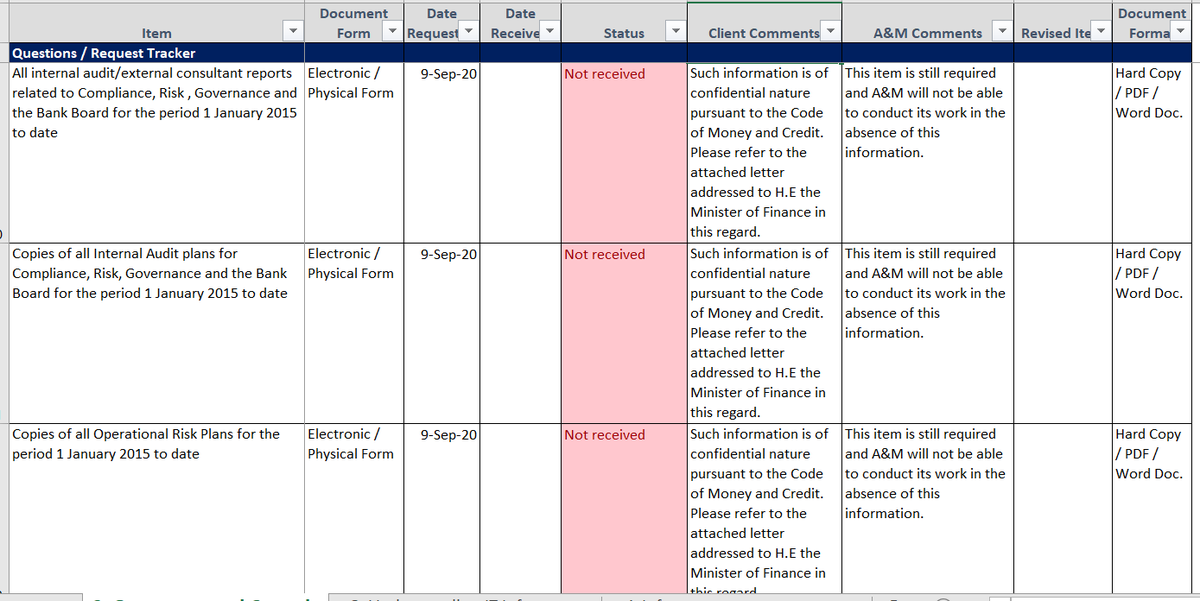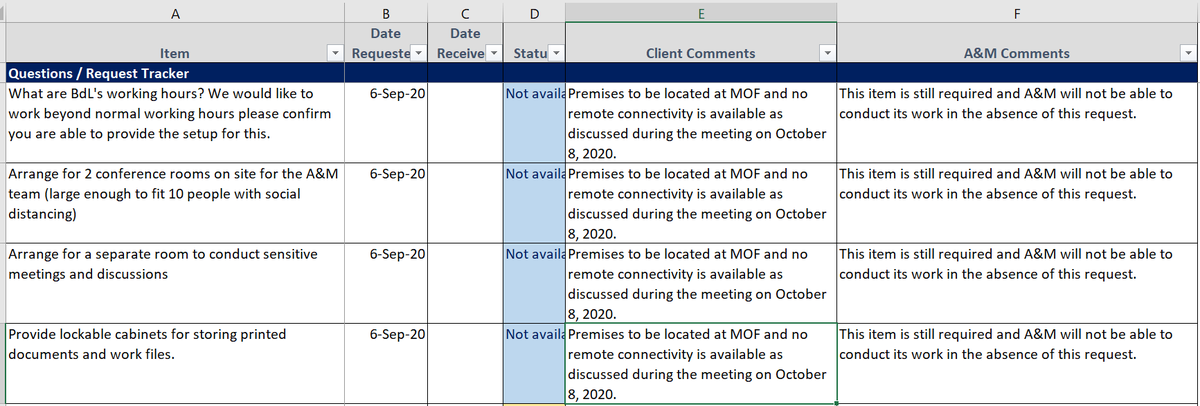
1/ This is an incredible article. When people have no faith in their institutions, things that should not be leaked get leaked. It's a mix of useful information about the BDL audit and blatant political propaganda and deflection.
forbesmiddleeast.com/preview/blogs/…
forbesmiddleeast.com/preview/blogs/…
2/ First, one point about the leaker. This was clearly leaked from a political side. While I appreciate having this info, this type of stuff should not be leaked and spun in the media. It is unprofessional and hurts the country, and it is misleading in many respects.
3/ The fact is, the failure of the audit is the responsibility of several sides. One side designed it to fail while the other side was so focused on a narrow political objective and acted with such remarkable incompetence and is now trying to deflect blame for its incompetence.
4/ A large portion of the requests BDL refused to respond to, citing Code of Money and Credit, have nothing to do with this law. For example, info related to internal procedures of the bank, internal audit plans, operational risk plans, etc. Things that should be public anyway... 

5/ It's really something. BDL didn't even try to make a legitimate or convincing excuse for not responding to a lot of these questions, just hiding behind the Code of Money and Credit for every request it didn't want to respond it.
6/ For those requests which may involve names of individuals or institutions, A&M proposed that BDL could anonymize the names (e.g., Individual 1, Institution 2, etc.) to get around the laws. But even with this option, BDL refused to provide the information.
7/ But I'm not sure anonymizing names is enough to get around the law. As I read the law (copied below), it seems not only to required confidentiality in connection with names of individuals/institutions, but is broader than that and covers account balances, transactions, etc 

8/ But no doubt BDL is stonewalling to avoid providing any information, even info that it is able to provide. This is why a person or agency who is themselves being audited cannot be involved in an investigation or external audit of himself. This was a fatal flaw.
10/ The only way to get BDL to cooperate with the audit is to involve a prosecutor & allow A&M direct access to the data, without anyone at BDL playing go-between. Or change the entire leadership at BDL to one that will cooperate. Changing the secrecy laws alone won't help.
11/ As for the propaganda in this article, this part says the President wanted to expand the audit to cover govt agencies/ministries. Nothing prevents him from taking serious steps to expand it. The fact that BDL audit is facing difficulties doesn't prevent an audit of ministries 

12/ So failure of the BDL audit should not stop us from auditing govt agencies (and making the BDL audit work). Don't let this be an excuse. It has nothing to do with audits of government agencies.
13/ This ridiculous idea needs to go away. Subjecting the contract to Lebanese law makes ABSOLUTELY NO DIFFERENCE. BDL and MOF have to comply with Lebanese law REGARDLESS of what the contract says! This is pure distraction. 

13/ It's a distraction because one side needs someone to blame for failure of the audit. They were too focused on a narrow political goal (blaming BDL) & spent too much time on insignificant points in the contract while entirely missing the big issues. The incompetence is insane
14/ Wazni did not "choose" A&M. There was a bid process and a working group involving several people chose. A&M is a fine and competent company anyway. A&M's price is not 4x that of Kroll. This idea also needs to go away. The contract prices are the about the same. 

15/ The Ministry of Justice is now saying that banking secrecy doesn't prevent BDL from providing info because it doesn't protect "parties" who committed crimes. Sure, but there is no prosecutor involved here nor is there a particular crime being investigated. More deflection.
16/ Ministry of Finance signed this contract knowing it would fail. It misled the public and acted in bad faith. Everyone is now running for cover and trying to deflect blame. But if everyone on Twitter knew what the challenges would be, there's no excuse for them.
17/ We all know the deal here. This system cannot reform itself nor can it investigate itself, not BDL nor the ministries, nor the slush funds. Too many decision-makers and influential people are implicated, and the level of incompetence at every level is mind-blowing.
• • •
Missing some Tweet in this thread? You can try to
force a refresh










